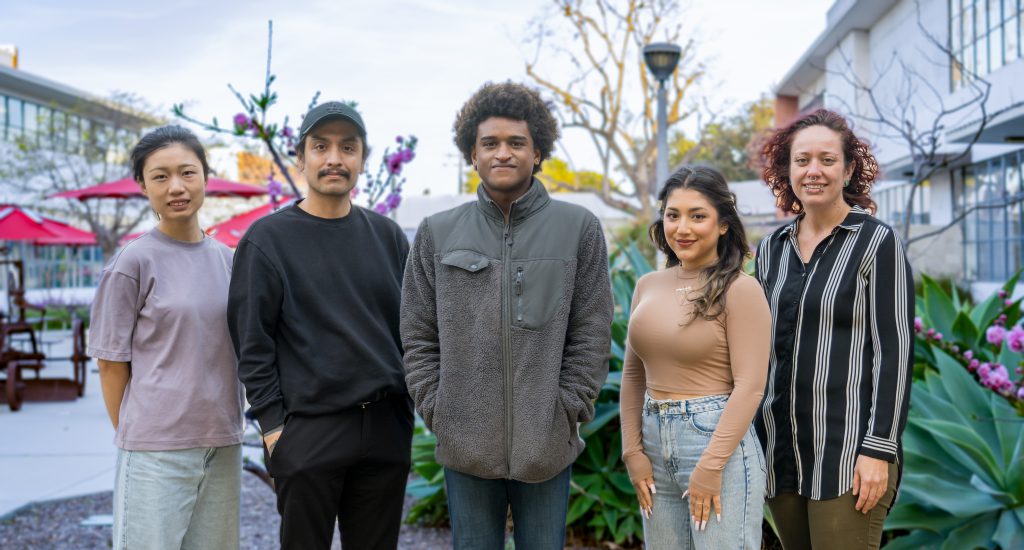Alumni Spotlight: Christian Weede
Christian Weede, MA in Philosophy Class of ‘15
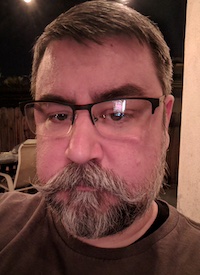 Christian first discovered his love of philosophical inquiry and discussion at Chaffey College; he later completed his BA in philosophy at CSUSB in 2011, and continued his education by joining the MA program in philosophy at CSULB. During his time in Long Beach, and with the help of his classmates, Christian organized weekly meetings for the graduate students to meet up and discuss ideas or papers that they might be working on. He earned several awards as a graduate student, including a summer research assistantship with Dr. Charles Wallis and the department’s Whittington Scholarship. Christian also presented at the Southern California Philosophy Conference, the Berkeley/Stanford/Davis Graduate Student Conference, and won first place at the 27th annual CSULB Student Research Competition. His MA thesis, entitled Overcoming the Present and directed by Dr. Cory Wright, argued against presentist theories of time. Upon completing the Master’s degree, Christian was hired as a lecturer in the Department of Philosophy at CSUSB in 2016. He often teaches ‘Introduction to Philosophy’ and ‘Moral Choices in Life’, but recently began teaching a course entitled ‘Truth, Lies, and Bullshit’ that addresses the value of truth within society. He continues to love philosophical puzzles, and hopes to share this love with his students.
Christian first discovered his love of philosophical inquiry and discussion at Chaffey College; he later completed his BA in philosophy at CSUSB in 2011, and continued his education by joining the MA program in philosophy at CSULB. During his time in Long Beach, and with the help of his classmates, Christian organized weekly meetings for the graduate students to meet up and discuss ideas or papers that they might be working on. He earned several awards as a graduate student, including a summer research assistantship with Dr. Charles Wallis and the department’s Whittington Scholarship. Christian also presented at the Southern California Philosophy Conference, the Berkeley/Stanford/Davis Graduate Student Conference, and won first place at the 27th annual CSULB Student Research Competition. His MA thesis, entitled Overcoming the Present and directed by Dr. Cory Wright, argued against presentist theories of time. Upon completing the Master’s degree, Christian was hired as a lecturer in the Department of Philosophy at CSUSB in 2016. He often teaches ‘Introduction to Philosophy’ and ‘Moral Choices in Life’, but recently began teaching a course entitled ‘Truth, Lies, and Bullshit’ that addresses the value of truth within society. He continues to love philosophical puzzles, and hopes to share this love with his students.
Alumni Spotlight: Josh Feng
Dr. Joshua Feng, BA in Philosophy Class of ‘14
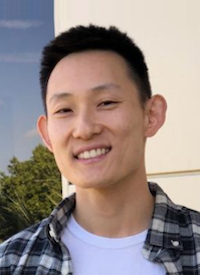
Josh earned both a BA in Philosophy and a BS in Biochemistry—and both with departmental honors, no less—while also graduating Phi Beta Kappa and magna cum laude. After Cal State Long Beach, he continued on into graduate studies at the University of Southern California, where he earned his Ph.D in Chemistry in 2022. During this time, he performed research on covalent drug discovery, investing most of his efforts in designing therapeutics for BRAF-positive melanoma and anti-virals against SARS-CoV-2. His work has been published in journals such as Journal of Medicinal Chemistry, Nature Chemical Biology, and mBio. Throughout his academic career, Josh has been heavily invested in education and culminated his stay at USC as an Anton B. Burg teaching fellow for organic chemistry lecture and laboratory. He has since returned to Cal State Long Beach as a lecturer in the Department of Chemistry and Biochemistry, where he teaches pre-general, general, organic, and biological chemistry. In his free time, he works on continually growing and learning but has recently enjoyed suffering through marathons and getting humbled while playing chess.
Alumni Spotlight: Jessica Manzo
Jessica Manzo, MA in Philosophy Class of ‘23
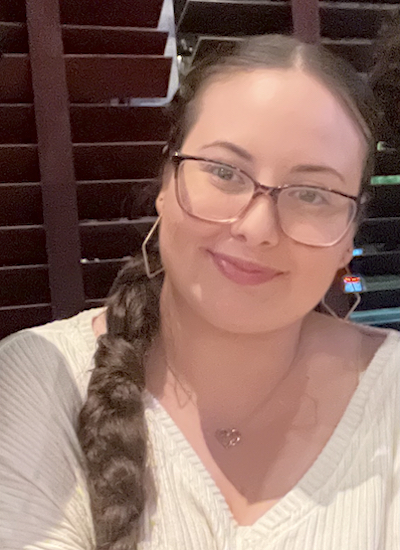 Jessica began her college education in Biochemistry at Bakersfield College—the community college in her hometown—but switched to Philosophy after a called ‘the ethics of living and dying’. From there, she transferred over to California State University Bakersfield in 2017, and in 2019 she earned a BA in Philosophy along with a minor in Economics. Along the way, Jessica became very invested in the Philosophy for Children Program (P4C), and so decided to continue in Philosophy at the graduate level. While at CSULB, she interned at Golden West Community College and worked as a peer mentor in CSULB’s GradMentor program. Jessica writes, ‘I am thankful for the relationships, mentoring, education, and time spent at CSULB. I now work at Dignity Health, Mercy & Memorials Hospitals as a Health Services Coordinator serving all ages across Kern County. In my free time, I enjoy spending time with my family, partner, and friends and catching up on my favorite shows’.
Jessica began her college education in Biochemistry at Bakersfield College—the community college in her hometown—but switched to Philosophy after a called ‘the ethics of living and dying’. From there, she transferred over to California State University Bakersfield in 2017, and in 2019 she earned a BA in Philosophy along with a minor in Economics. Along the way, Jessica became very invested in the Philosophy for Children Program (P4C), and so decided to continue in Philosophy at the graduate level. While at CSULB, she interned at Golden West Community College and worked as a peer mentor in CSULB’s GradMentor program. Jessica writes, ‘I am thankful for the relationships, mentoring, education, and time spent at CSULB. I now work at Dignity Health, Mercy & Memorials Hospitals as a Health Services Coordinator serving all ages across Kern County. In my free time, I enjoy spending time with my family, partner, and friends and catching up on my favorite shows’.
New Faculty Joining the Department!
The Department of Philosophy is delighted to announce that Marie Jayasekera will be joining us this coming FA23 as a new Assistant Professor of Philosophy.
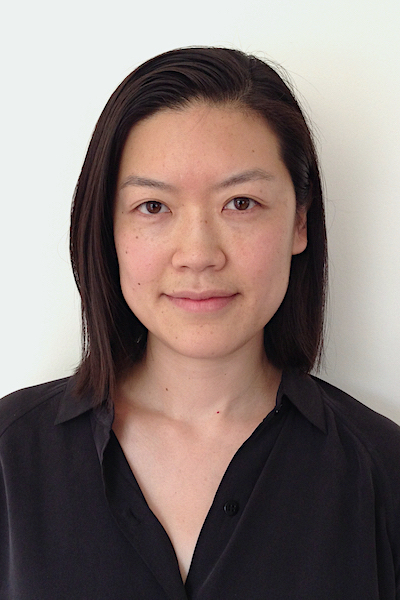 Dr. Jayasekera earned a Bachelor’s of science degree in biology from Yale University. She went on to earn an MA in Philosophy from Tufts. She took her PhD from Michigan, which is one the most distinguished doctoral programs in Philosophy in the United States. Before arriving here in Long Beach, Dr. Jayasekera taught at Colgate University and was a visiting researcher at the University of California Irvine.
Dr. Jayasekera earned a Bachelor’s of science degree in biology from Yale University. She went on to earn an MA in Philosophy from Tufts. She took her PhD from Michigan, which is one the most distinguished doctoral programs in Philosophy in the United States. Before arriving here in Long Beach, Dr. Jayasekera taught at Colgate University and was a visiting researcher at the University of California Irvine.
Dr. Jayasekera’s primary areas of expertise are in the history of early modern period (esp. Descartes) and applied metaphysics (esp. free will and agency). Secondarily, she also does research in moral psychology as well as the history of political philosophy and normative ethics. Among her most recent publications is “All in Their Nature Good’: Descartes on the Passions of the Soul’, which was published in volume 58 of the Journal of the History of Philosophy. This past spring, she presented new work on the Hobbes vs. Bramhall debate on liberty here at CSULB and at the APA.
This FA23, students are in for a special treat, as Dr. Jayasekera will be teaching a course on John Stuart Mill’s Moral and Political Philosophy (PHIL496/596). Previously, she has also taught Political Philosophy (PHIL351), Social Contract Theory (PHIL491/591), Moral Responsibility (PHIL496/596), and Free Will in Early Modern Philosophy (PHIL491/591). Some students have also been able to work with her as a summer research assistant, too.
Welcome, Professor Jayasekera!
Philosophy Equity Scholars
The Department of Philosophy is currently home to five graduate students who have been awarded research assistantships over the past two years courtesy of the ‘Equity Scholars’ program in College of Liberal Arts. These students have received mentorship to assist them with their research goals, both within PHIL and CLA, and financial support.
The Philosophy Equity Scholars, pictured below from left to right, are Ning Shao, Frank Mendoza, Esther Sims, Victoria Cinquegrani, and Chavva Olander.
Ning Shao became interested in philosophy after reading her high school teacher recommended that she read Jostein Gaarder’s Sophie’s World—a book that explores the history of philosophy through the perspective a young girl who was asked by a philosopher: ‘Who are you?’ Later, Ning was inspired by the works of David Lewis and by her meetings with Dr. Ivan Ivanov, who encouraged her to continue on in philosophy. Ning also met her partner at the beginning of her philosophical journey and together they have pursued a shared passion for analytic philosophy and similar areas. Ning states that she loves the community she’s found in the department here at CSULB, saying that the friends she’s made among her peers and the excellent faculty members, especially noting the devoted and caring Dr. Cory Wright, have made her feel like she is part of a family—something that’s become very important to her as an international student. Ning credits the EQS program for giving her the financial support and extra time to focus on her work. Ning wants to pursue a PhD in philosophy and hopes to make contributions to civilization and the welfare of mankind through her philosophical research and teaching.
Initially, Frank Mendoza began from reading texts by the French existentialists Sartre and Camus; but it was an introductory philosophy class at Santa Ana College—with the tough but fair Carlos Brocatto—that ignited his interest to pursue philosophy seriously. Frank cites the opportunity to explore his interests deeply as having a profound impact on his well-being. Having also completed his undergraduate degree in Philosophy here at CSULB, Frank was grateful for the comfort and familiarity that came with beginning the MA program, and has found it to be full of kind and welcoming people so far. Mentorship from Drs. Max Rosenkrantz and Kyle Banick have also pushed him to further sharpen his skills. Frank says that being selected for the EQS program has allowed him to give full attention to his work rather than to fret over finances, and he hopes he will make his department proud with his efforts. Frank wants to pursue a PhD in Philosophy; but in the event that that somehow doesn’t work out, he is glad that he was able to pursue something he cared about and which challenged him, noting the intrinsic value inherent in such opportunities.
Like Ning, Esther Sims became interested in philosophy during high school while writing a report on Machiavelli’s The Prince. Esther was intrigued by the experience of agreeing with the premises but not the conclusions, analogizing it to a good horror movie. Esther also cites Deleuze & Guattari’s Anti-Oedipus as being influential in her decision to pursue philosophy. She thinks that it alleviated the disorientation she felt around questions she had about the world, and subsequently realized that philosophy could also actively create the world rather than merely describe it. In philosophy, Esther has found a way for others to be able to recognize her. She worries that it creates a separation between those lucky enough to have the opportunity to access it and those who do not, but she desires to teach in the community colleges to help erase that accessibility divide. She is grateful to the Philosophy Department, especially the professors and fellow graduate students, for making her feel welcome as a trans person in an elite discipline; without the EQS, Esther says that she’d have been unable to pursue a graduate education.
Victoria Cinquegrani became interested in philosophy by taking courses with Drs. Jeff Helmreich and Aaron James during her undergraduate studies in Philosophy at UC Irvine, where she pursued the Law, Society, and Public Health Policy program. Victoria enjoyed the methodological challenges of arguing for views that she did not necessarily agree with, and gained valuable practice in developing her analytical skills. Her research concerns the ways legal and natural rights are forsaken in depictions of social injustice, and she has a particular interest in better understanding the suffering and persecution of Armenians under Turkish ideological authority. Victoria is extremely grateful to have been selected for CLA’s EQS program, and hopes to take advantage of the faculty mentorship that will help propel her forward and grow academically. She believes that Philosophy here at CSULB will help her further sharpen her the analytical and argumentative skills that are necessary to pursue a JD in law school.
Chavva Olander says the critical tradition of philosophical inquiry, along with its creativity and rigor, have enriched her life in ways far beyond mere occupational concerns. She says the philosophy program at CSULB teaches philosophy as a practice as well as a subject of study, and that it has provided her support and guidance for in her philosophical efforts—particularly in working with Dr. Marie Jayasekera last year—as well as important opportunities to participate in the discourse in philosophy outside the university. Like Ning and Frank, Chavva affirms that the financial support provided by the EQS program has given her the gift of time to focus on research projects and participate in conferences. She is grateful to the program for introducing her to a group of driven and impassioned students, and faculty whose personal stories and academic pursuits are sources of inspiration.
We are grateful for the college’s investment in the lives of our graduate students, and to CLA Dean Deb Thien and EQS coördinator Mariya Mileva for their support. It will be exciting to see these students achieve their goals and make a positive impact on our world.
Interviews by Tracie Hoops
Photo by Debbie Hildreth Pisarcik
Caitlin Mace Wins AY21–22 Best Thesis Award
Congratulations to Caitlin Mace, 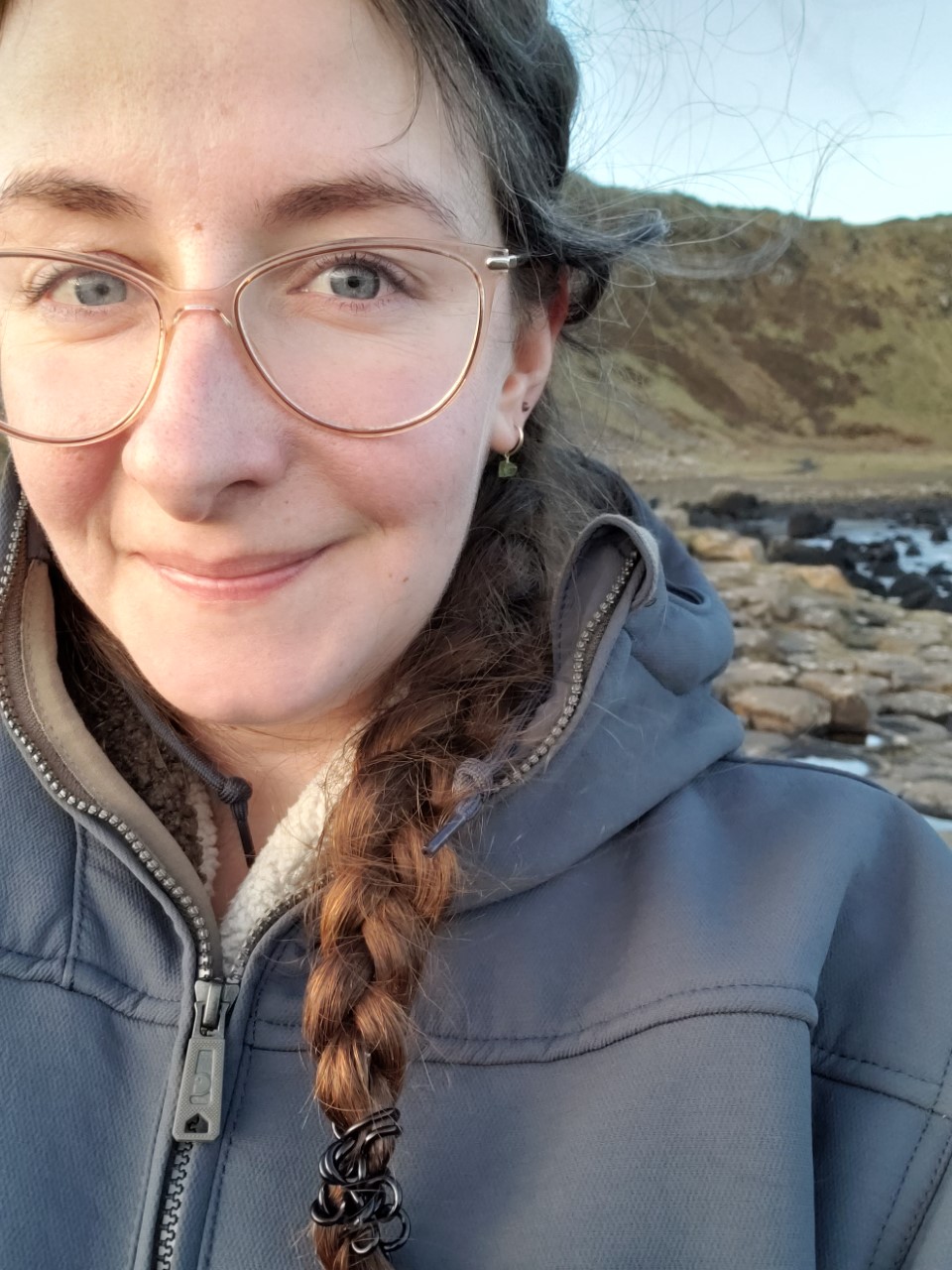 who is the second Philosophy graduate student in the last three years to win the award for Best Master’s Thesis in the College of Liberal Arts. Caitlin was lauded for the depth of her research in philosophy of neurobiology, which appeals to exciting new work in optogenetics as a test case to examine a long-standing debate between mechanists and reductionists.
who is the second Philosophy graduate student in the last three years to win the award for Best Master’s Thesis in the College of Liberal Arts. Caitlin was lauded for the depth of her research in philosophy of neurobiology, which appeals to exciting new work in optogenetics as a test case to examine a long-standing debate between mechanists and reductionists.
Caitlin completed a Bachelor’s degree in Psychology at (what is now) Cal Poly Humboldt, where she made the President’s list several times. In what was supposed to be her final semester, Caitlin elected to take a 300-level class on Kant and Hegel. That experience led her to stay on to complete an entire minor in Philosophy in a single semester—a decision that would change the course of her life. In FA19, she began in Dr. Nell Wieland’s graduate proseminar on animal cognition, and went on to take courses on early modern philosophy with Dr. Jayasekera, the epistemology of know-how with Dr. Charles Wallis and color perception with Dr. Wayne Wright, among others.
In SU20, Caitlin successfully applied for a research assistantship with Dr. Cory Wright. After getting up to speed on the seminal literature on reduction and reductionism in philosophy of science, she pivoted to surveying the last 100 years of research on memory and then to the latest research in optogenetics. Caitlin’s assistance has proved integral to work on a joint research paper on reductionist appeals to optogenetics; preliminary work on this topic led to two poster presentations at the Society for Philosophy and Psychology and the European Society for Philosophy of Science, along with a review of Alex Rosenberg’s 2020 book, Reduction and Mechanism, in Australasian Journal of Philosophy.
Caitlin’s experience as a summer research assistant eventually led to her thesis research, too, where she argued that the continuity between reductionists and mechanists is overstated, and that optogenetics is not the parade case that reductionists have billed it as. Explanations of mnemonic processes—like those given for engrams and ecphory—must appeal to intermediate levels of mechanistic componentry and so cannot just be ‘nothing but’ lowest-level molecular operations within, e.g., place neurons in the dentate gyrus. Ever the equal opportunity critic though, Caitlin also argued that mechanists, for their part, offer what is effectively only a promissory note; for without construct stabilization and domain integration, there is no adequate mechanistic explanation from optogenetic research on engrams. Consequently, mechanists also have their work cut out for them as well. Here is the abstract to Caitlin’s thesis:
Philosophers of neuroscience reflect on questions foundational to neuroscience and neuroscientific practice. Ruthless reductionists characterize neuroscientific research as providing evidence for direct causal relations between molecular processes and cognitive phenomena, whereas new mechanists characterize neuroscientific research as providing schemata for multilevel explanations of cognitive phenomena. In this thesis, I examine the debate between these competing characterizations. To do so, I analyze a case study of the search for engrams in optogenetics research. Optogenetics is a tool that neuroscientists use to elicit learned behavior by labeling and re-activating neurons that were active during learning. The role of the engram construct—conceived as the neurophysiological entity resulting from learning-induced changes and responsible for the retrieval of a memory—is to guide optogeneticists to the neurophysiological structures that function as engrams. I argue that this research program is not ruthlessly reductive, nor does a mechanistic explanation obtain.
Impressively, Caitlin managed to flourish—not in just one subject matter—but in four: Philosophy of Science, Psychology, Cognitive Neuroscience, and Molecular Biology. Caitlin successfully defended her thesis on June 15th to great fanfare, and graduated in SU21 from Cal State—this time with a Master’s degree in Philosophy. Her accomplishment represents the best of the Liberal Arts: original research that seamlessly integrates au currant scientific research and philosophical argumentation in order to demonstrate how methodological considerations both do, and do not, bear on the justification of philosophical theories.
Caitlin was subsequently admitted to several top PhD programs—an impressive feat in Philosophy, given how many of them have approximately 95% declination rates. Caitlin ultimately decided to attend the History and Philosophy of Science program at the University of Pittsburgh. (In HPS circles, Pitt vies with Cambridge University for having the #1 doctoral program in HPS in the Milky Way Galaxy.) Caitlin hopes to continue building on her successes here at Cal State Long Beach as she continues to develop her scholarship at Pitt. Again, congratulations, Caitlin, on your accomplishment. You’ve made us all very proud!
Sandra Avitia completes triple major
Congratulations to Sandra Avitia, who graduated with a triple major in Philosophy, French, and International Studies this past FA20. (Yes, you read that right—a triple major!)
Sandra’s interest in Philosophy began in high school when she joined a program that incorporated Philosophically-based English classes into the curriculum. She started off reading classics by Plato, studying his ideas on metaphysics and ethics. She also studied philosophical theology with Dante’s Inferno. This program later included readings on more controversial topics such as female circumcision and its role in medical ethics. Sandra planned to become an international lawyer with a concentration in human rights, as she realized philosophy was the perfect major to prepare her for this career. Not only did philosophy challenge her to form well-written arguments for topics such as existentialism, altruism, and ethics, but it also challenged her to analyze cultural norms around the globe and different ways of thinking.
As she embarked on her academic journey at Cal State Long Beach, she studied philosophies such as Taoism and Confucianism, exploring the Eastern views on time and consciousness. She continued her studies in medical ethics with Professor Dieveney, learning about different perspectives on topics such as embryonic stem cell research and euthanasia. She took a Foucault class with Professor Rosenkrantz, and enjoyed the distinct perspectives Foucault takes on sexuality and his ideas of power and its relation to knowledge.
Sandra originally started off as a Philosophy major but later realized the subject complemented her other academic interests. She thus went on to add majors in International Studies and French. Philosophy came up in her International Studies classes as well. This included Karl Marx’s theory of alienation of labor as well as renowned French philosophers Simone de Beauvoir’s work The Second Sex and Frantz Fanon’s Wretched of The Earth. In addition to her philosophy coursework, Sandra took classes on international migration and its relation to Benedict Anderson’s Theory of Imagined Borders. Her coursework followed a class on international development that focused on understanding the benefits and limitations of UN agencies in poorer countries.
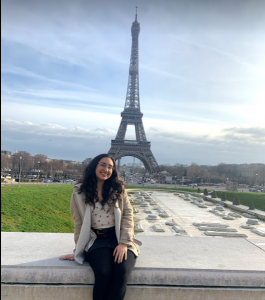 Sandra left North America for the first time in the FA19 to start a year abroad at the Universities of Paris in France, where she took the majority of her French classes and immersed herself in the rich culture of the country. These classes included some focused on French culture and history, a class on the most popular comic books in France, two others analyzing the differences between American and French culture and classic French film and novels. Sandra also had the opportunity to study the plethora of highly esteemed French philosophers. She studied the revolutionary works of Voltaire and Montesquieu, and her coursework also included those of Rousseau and Diderot. In addition to the famous philosophers of the Enlightenment, she had the opportunity to study sociolinguistic philosophy in a course on the role of French in post-colonial French territories.
Sandra left North America for the first time in the FA19 to start a year abroad at the Universities of Paris in France, where she took the majority of her French classes and immersed herself in the rich culture of the country. These classes included some focused on French culture and history, a class on the most popular comic books in France, two others analyzing the differences between American and French culture and classic French film and novels. Sandra also had the opportunity to study the plethora of highly esteemed French philosophers. She studied the revolutionary works of Voltaire and Montesquieu, and her coursework also included those of Rousseau and Diderot. In addition to the famous philosophers of the Enlightenment, she had the opportunity to study sociolinguistic philosophy in a course on the role of French in post-colonial French territories.
 Unfortunately, back in March, the looming COVID-19 pandemic brought Sandra’s study abroad experience to an abrupt halt. Countries started to close their borders and she was left with a very difficult decision to either stay in France or return home. Ultimately, Sandra decided to remain in France until July 2020, where she experienced one of the strictest lockdowns in Europe. However, it was an opportunity to compare the different cultural responses to the pandemic.
Unfortunately, back in March, the looming COVID-19 pandemic brought Sandra’s study abroad experience to an abrupt halt. Countries started to close their borders and she was left with a very difficult decision to either stay in France or return home. Ultimately, Sandra decided to remain in France until July 2020, where she experienced one of the strictest lockdowns in Europe. However, it was an opportunity to compare the different cultural responses to the pandemic.
Sandra is extremely grateful for her study abroad experience as well as for her newfound community at Cal State Long Beach. She started off her first semester at Cal State Long Beach in a new city full of ambition, and is happy to have found a multitude of teachers and faculty to help guide her academic decisions toward triple majoring and studying abroad. It was her community at Long Beach that has helped shape the determined critical thinker she is today. She has excelled in her academic fields, and ended her semester with a 3.62 GPA.
Sandra plans to attend grad school in the upcoming years. She wants to earn a Master’s in public policy and pursue a career in human rights activism. Sandra currently speaks three languages: French and Spanish, in addition to her native English. She hopes to one day work with a United Nations specialized agency to continue her passion for human rights.
Dean Bruce Wins AY19–20 Best Thesis Award
Congratulations to graduate student Dean Bruce, who won the award for Best Master’s Thesis in AY19–20 in the College of Liberal Arts. Dean produced an exemplary piece of historical scholarship, and one of the most erudite theses to come out of the MA program in decades.
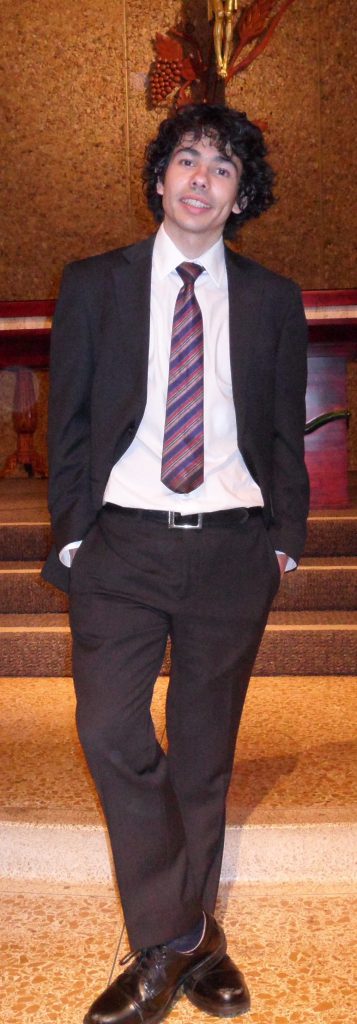
In SP11, Dean earned a Bachelor’s degree from Cal State Long Beach in Cell and Molecular Biology. A couple of years later, he enrolled in philosophy of science with Prof. Cory Wright, and—after taking a few other courses over the years to catch up—Dean matriculated into the graduate program in Philosophy. Initially, Dean was focused on constructivist epistemology and scientific anti-realism; he also has an abiding interest in the David Hume’s moral and scientific philosophies, and was influenced by Prof. Jason Raibley’s moral psychology class. However, after seminars in philosophy of religion with Prof. Marcy Lascano, supplemented with courses in Plato and Aristotle with Dr. Max Rosenkrantz and continental rationalism with Dr. Larry Nolan, Dean became intrigued by medieval philosophy and read extensively throughout the primary, secondary, and tertiary literature on this period.
While he certainly has an affinity for early modern philosophy, and Hume in particular, Dean judged that this field had been extensively covered. And so he chose a thesis on Islamic philosophy owing to his desire to work on a novel and historically exotic philosophy topic. The result was a close study of the medieval Islamic thinker Abû Hâmid Muhammad ibn Muhammad al-Ġhazâlî (fl. 1056–1111 CE) on the topic of occasionalism. al-Ġhazâlî was a highly influential philosopher, theologian, jurist, and mystic, and influenced numerous Muslim and Christian philosophers, like Avicenna and Thomas Aquinas. Traditionally, he is taken to have endorsed occasionalism, which is the metaphysical doctrine that God is the only genuine cause, and that any secondary causes merely provide the ‘occasion’ upon which God exercises causal power in the world. Contrary to the standard interpretation, however, Dean argues in his thesis that al-Ghazâlî’s commitment to occasionalism is complicated and often indeterminate, and raises questions about natural science and divine omnipotence. Here is the abstract to Dean’s thesis:
This thesis is a study of al-Ġhazâlî’s views on occasionalism. Although al-Ġhazâlî’s views on occasionalism are indeterminate, it is evident that his theological work aimed to affirm the omnipotence and liberty of God in exerting influence upon created order. One polemical challenge against divine omnipotence and the integrity of religious revelation from the Islamic tradition comes from the Aristotelian-inspired philosophers who argue that the order operates through natures that are intrinsic to certain objects. This view on natural philosophy undermines the orthodox commitment to miracles as depicted in the Qur’an and hadith literature. al-Ġhazâlî used a variety of arguments to affirm miracles and God’s agency in the created order, not only assailing the natural philosophy that the world operates according to the natures intrinsic to created objects, but also arguing that God can operate through mysterious and previously unknown phenomena in the natural order. Thus, according to al-Ġhazâlî, since God can manifest his power through mysterious, unknown phenomenon, there is no epistemological means to distinguish between natural and supernatural events. That is unproblematic for al-Ġhazâlî if God’s power is so pervasive that it encompasses everything. However, it undermines miracles as being a theological proof of the validity of revelation and prophecy.
Dean successfully defended his thesis on March 4th to great fanfare, just before the University began closing down due to the covid-19 pandemic of 2020, and is graduating in SP20 from Cal State Long Beach, again—this time with a Master’s degree in Philosophy. His accomplishment represents the best of the Liberal Arts: original research that seamlessly integrates scientific understanding of the cosmos with historical exegesis and the analysis of important ideas during the Islamic Golden Age. Again, congratulations, Dean, on your accomplishment. You’ve made us all very proud!
In the near future, Dean plans to attend a doctoral program to work on early modern moral sentimentalist metaethics, particularly as it concerns the work of Francis Hutcheson, David Hume, and Adam Smith. He also plans to return to campus to engage in discussions with his professors and fellow philosophy students He may continue to work in this area, and pursue publication of his research and to work further in the philosophy of religion.
Spotlight on a new course: PHIL101: Meaning of Life (FA17)
This coming FA17, the Department of Philosophy is offering a new 100-level course: PHIL101: The Meaning of Life
PHIL101 will introduce students to central questions about the meaning of life. The question itself may be taken in a number of ways: Why is there a universe that contains life? What is the nature or purpose of human persons? What is the point of our existence? What should we do with our lives? This course examines these and other questions relating to meaning in life. It investigates our place in the physical universe, the possibility and significance of God’s existence, the nature of human persons (including the relation between body, mind, and consciousness, and the nature of mind and body), what death tells us about the nature of life and whether it is appropriate to fear death, the nature of ‘the good life’ (including the import for ‘the good life’ of knowledge, success, pleasure, health, friendship, love, in both physical and mental life, etc.), the nature of value and its relation to meaning in life, and our obligations to other beings.
PHIL101 also satisfies two GE requirements: (i) C2 Humanities: Philosophy and (ii) E: Lifelong Learning & Self-Development. Additionally, philosophy majors can also use this course to satisfy their three units of lower-division electives and minors can count the course toward their maximum of nine lower-division units.
The course will be offered in FA17 by Prof. Marcy Lascano on Tuesdays & Thursdays from 12:30pm–1:45pm. Please contact her if you have any questions.
Spotlight on a new course PHIL261: Philosophy and Film (FA16)
This coming FA16, the Department of Philosophy is rolling out a new 200-level course in the area of Values and Evaluation: PHIL261: Philosophy and Film.
The course is will be an exploration of philosophical ideas and problems presented through film, photography, and imagery. The course satisfies two GE categories: C1: Arts and E: Lifelong Learning & Self-Development. Philosophy majors can use this course to satisfy their three units of lower-division electives and minors can count the course toward their maximum of nine lower-division units.
This fall, the course will run on Tuesdays & Thursdays in UTC–101 from 11:00am–12:15pm. It will be taught by Prof. Cory Wright; please contact him for more information.
Update: section 01 of PHIL261 is filled, but the department has added a second section 02, which runs on Mondays & Wednesdays in HSCI-101 from 12:30pm–1:45pm.

